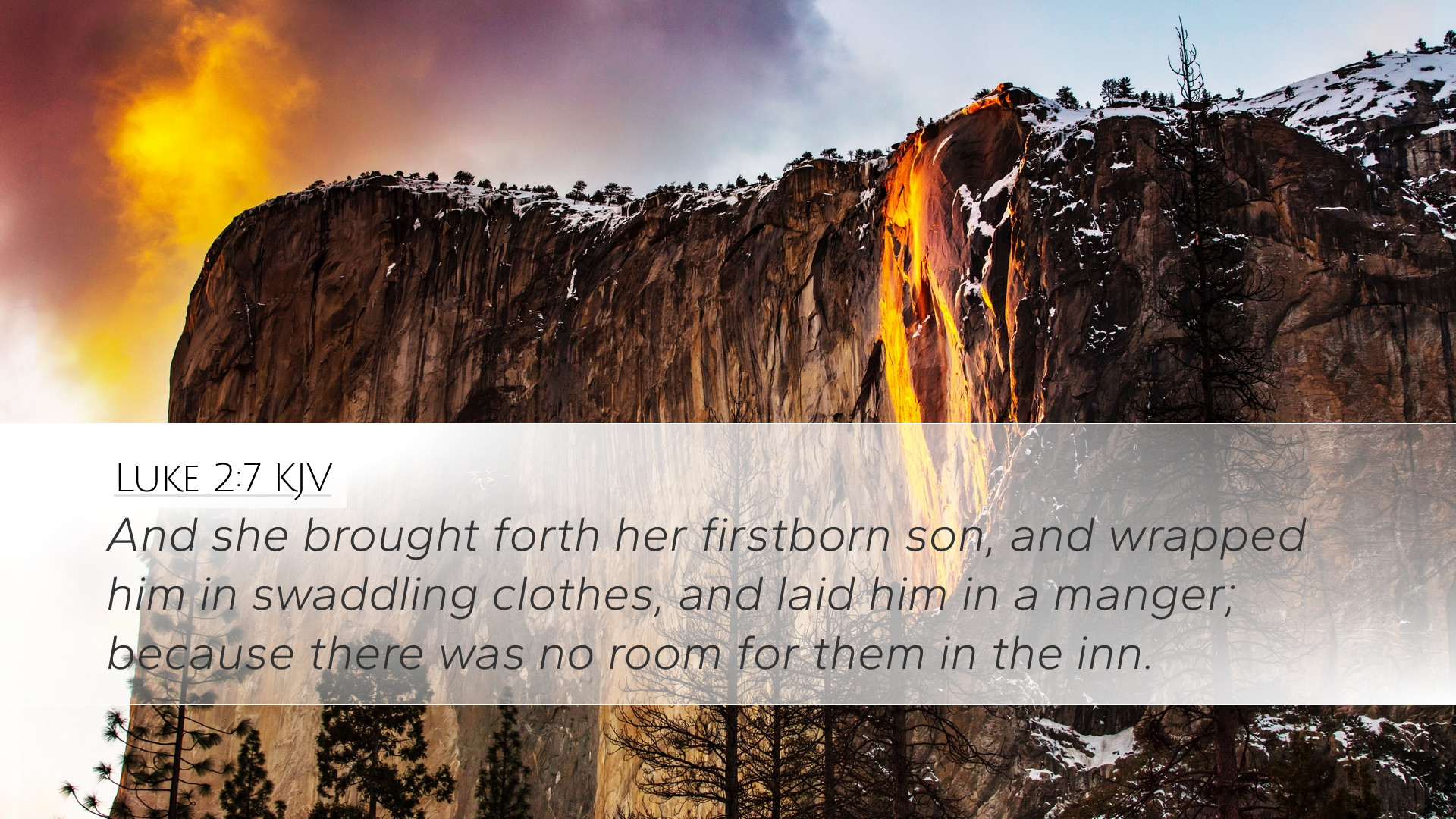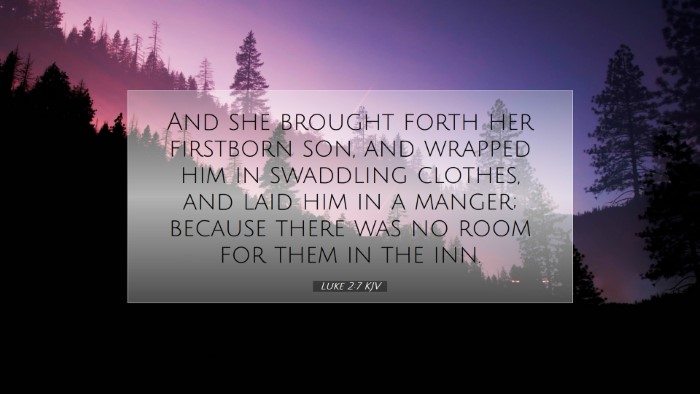Commentary on Luke 2:7
Verse: "And she brought forth her firstborn son, and wrapped him in swaddling clothes, and laid him in a manger; because there was no room for them in the inn." (Luke 2:7)
Introduction
This verse encapsulates the humility and simplicity surrounding the birth of Jesus Christ, the Savior of the world. The circumstances of His birth reflect profound theological significance and invite deep contemplation for pastors, students, theologians, and Bible scholars.
The Birth of the Savior
Matthew Henry emphasizes the stark contrast between the greatness of Christ and the meager circumstances of His birth. Though He is the King of Glory, born in a stable, and laid in a manger, this image highlights the theme of humility. The divine plan unfolded in ways that defy human expectation, setting a precedent for His earthly ministry.
Swaddling Clothes
Albert Barnes observes the act of wrapping the newborn Jesus in swaddling clothes as a fulfillment of prophetic symbolism. This act symbolizes the care and tenderness with which God enters into human experience. Swaddling was a common practice to ensure warmth and security, paralleling the comfort found in Christ for believers.
The Manger
Adam Clarke further elaborates on the significance of the manger. Being a feeding trough for animals, the manger signifies the rejection Jesus faced during His early life. Clarke notes that while the world was busy with its affairs, it overlooked the most extraordinary event in history—the birth of God incarnate. The location speaks volumes about Christ's mission to identify with humanity's lowliness.
No Room in the Inn
- Theological Implication: The lack of room in the inn reflects the spiritual condition of humanity. Many hearts, busy with life’s pursuits, remain indifferent to the presence of Christ. This detail serves as a powerful reminder to the modern church about the importance of preparing room in our lives for Christ's transformative presence.
- Social Context: Barnes points out the social implications of Mary and Joseph’s situation. They were marginalized, stripped of comfort, showcasing the socio-economic challenges faced by many. This scenario is an invitation for believers to offer hospitality and support to the marginalized in their communities.
Application for Believers
This verse is not merely historical; it calls believers to reflect on their own lives. Are we making room for Christ amidst the chaos of modern life? Are we willing to embrace humility and servanthood as modeled by the Savior? Matthew Henry touches on the theme of humility throughout Scripture and reminds Christians of the virtues of meekness and lowliness.
Conclusion
In conclusion, Luke 2:7 serves as a profound entry point into understanding the nature of Jesus Christ and His mission. The circumstances of His birth challenge the human notion of greatness and compel believers to seek Christ in the lowly and the overlooked. As we reflect on this verse, let it inspire us to create space in our lives for Jesus, fostering a spirit of humility and compassion towards others.


